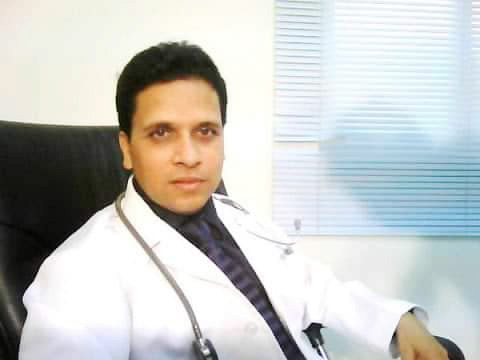As Guyana and the rest of the world ends the observance of cervical cancer awareness month, resident obstetrician and gynaecologist (OBGYN) Dr Raveendranath Ichlangod is encouraging women to have pap smears done as soon as they are 20 and every year after as too many are still turning up for treatment with late stage cancer.
“After your twentieth year I recommend that every birthday gift should be one… annual medical check-up… if they can be examined then we can detect breast cancer or cervical cancer — which is the leading cause of death — and therefore they can either be prevented or treated,” Dr Ichlangod told this newspaper during an interview.
January is designated cervical cancer awareness month and Dr Ichlangod stressed that this cancer is one of the leading cancers and causes death among women around the world, especially in those countries with low socioeconomic status.
He pointed out that if a woman gets a yearly gynaecological checkup, this major cancer, which is treatable, can be prevented.
“Those two cancers [cervical and breast] stand in the front line. They are the killer cancers in our population…we have a lack of medical facilities; people don’t know what age they have to go for screening even with all the education…we still don’t go to a doctor,” he pointed out.
Dr Ichlangod, who is the associate oncologist at the Guyana Cancer Institute, said the institute primarily focuses on treatment as it is the radiation oncologist centre and not a prevention centre. However, he pointed out, “sitting there waiting for patients to come is not the solution”. Rather, he said, there should be massive intervention to propel women to be screened so that the cancer, if it is there, can be detected an early stage.
According to the oncologist, cervical cancer can be classified under sexual transmitted diseases caused by a viral infection.
The Mayo Clinic states that cervical cancer occurs in the cells of the cervix — the lower part of the uterus that connects to the vagina. Various strains of the human papillomavirus (HPV), a sexually transmitted infection, play a role in causing most cervical cancer.
The doctor pointed out that by age of 60 or 70, 80% of the population would have been exposed to HPV, which has more 150 strains, though only a few are cancerous and the others cause genital warts, which are not serious and never cause cancer.
Importantly, as well, Dr Ichlangod pointed out that it takes about 10 to 20 years for a woman to develop the cancer from the time of being infected with the virus. He encouraged also that both boys and girls should be vaccinated against HPV, which would then prevent the cancer in adulthood. Adults up to the age of 40 can also be vaccinated against the virus.
“That is the blessing where we can do a pap smear test and find out of the cell change. A pap smear is just one-minute procedure for the patient. The sample is collected, the patient is put on the bed for a gynaecological examination… a small brush will collect secretion from inside the cervix and the vaginal wall…and send it to the lab for testing,” he explained.
He said both men and women can be the carriers of the virus and it is true that the more sexual partners an individual has the higher the risk of being infected. But, as he explained earlier, being infected does not mean that the woman will have cervical cancer as the body can abort the infection if it is not a serious type.
The doctor went on to explain that if the woman has multiple partners, if they are smokers, have other sexually transmitted diseases, low socioeconomic status, have multiple children and other pre-disposing factors then they stand a higher risk for the cancer than the normal population.
It was pointed that any abnormal bleeding (including that which occurs when one strains to defecate), discharge, or bladder irritation could be signs of cancer and women are encouraged to see a gynaecologist if they observe any of these.
With these symptoms, the patient may have already have cancer but Dr Ichlangod pointed out that cervical cancer has a good prognosis once treatment is applied in the early stage as it is highly radiation sensitive and in stage two the patient can be 60% to 70% cured. But once it is more advanced and may have reached the bladder, rectum or lungs the rate of survival is 20% to 30%.
“When we have advanced stage is when the patient sees all the symptoms but ignore them until they start to feel pain. Pain is never the sign of early cancer…usually the cancer suffers in silence for one to two years and they don’t come to the doctor and the stage that we see is advanced,” he explained.
Generally, at the institute patients are already at stage two or stage three where the survival rate is cut by almost half. According to global statistics, Dr Ichlangod said, every year there will be over 100 diagnoses of cervical cancer in Guyana. He said at the institute they see about that number and it is not the true picture of the local situation because some go overseas or are treated locally elsewhere. There are also those who die without being treated.
But with the vaccination, he said, the cancer can be eradicated as it is a viral infection for a long time before it becomes cancerous.
Late detection of the cancer also puts a burden on the health care system and Dr Ichlangod noted that just a par smear can prevent this or the HPV vaccine.






